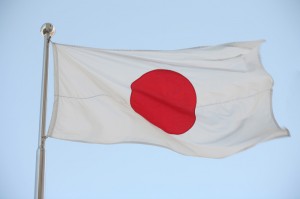Bloomberg | 27 April 2009
By Aya Takada
April 27 (Bloomberg) -- Japan, the world’s largest grain importer, will help local companies invest in agricultural production and distribution overseas to ensure stable supply as global food demand increases.
Japan is considering providing loans from a government-owned bank for companies to purchase and lease farmland abroad, Munemitsu Hirano, counsellor at the international affairs department of the Ministry of Agriculture, Forestry and Fisheries, said. The government may also use foreign aid to improve infrastructure such as storage and port facilities in developing countries, he said.
Food importers such as South Korea and Saudi Arabia are taking steps to increase overseas agricultural investment to ensure food security after prices of corn, wheat and rice surged to records last year. Japan relies on imports for 60 percent of its food and last year purchased almost all its corn requirements from the U.S., the world’s largest exporter.
“Grain imports are indispensable for Japan as we don’t have enough arable land to satisfy domestic needs,” Hirano said in an April 24 interview. “We also need to diversify supply sources as we are heavily dependent on imports from the U.S.”
The government is coordinating with the state-owned Japan Bank for International Cooperation and Japan International Cooperation Agency, a foreign aid provider, to decide by August details of its strategy for overseas agricultural investment, Hirano said.
America, Asia
“Our new plan may cover investment in countries in Latin America, Central Asia and Eastern Europe for supply of corn, soybeans and wheat,” Hirano said, citing Brazil, Argentina, Paraguay, Kazakhstan, Ukraine, Romania and Hungary as possible investment targets.
Japan is also considering making payments from government-affiliated Nippon Export and Investment Insurance to cover damages if companies are unable to ship from their overseas farms or storage facilities because of export curbs, Hirano said.
Grain exporters including Russia, Ukraine and Kazakhstan restricted shipments last year to secure supply for local consumption or to curb food inflation, accelerating a rally in international prices and spurred riots in importing countries such as Egypt and Haiti.
Toyota Tsusho Corp., a trading company affiliated with Toyota Motor Corp., plans to import milling wheat from Kazakhstan to Japan to diversify its supply, Shigemasa Miki, wheat and rice group leader at the trade house, said March 12.
Brazil Soybeans
Mitsui & Co., Japan’s second-largest trading company, may increase investment in overseas farming to secure supplies. The company is seeking new targets after taking a 39.35 percent stake in Multigrain AG, which produces soybeans in Brazil, the world’s second-largest grower, Keiichi Tsukahara, general manager at Mitsui’s oilseeds department, said Dec. 17.
Saudi Arabia, the biggest Arab economy, will form a 3 billion-riyal ($800 million) company to invest in agricultural projects abroad as the kingdom seeks to increase food supply, the state-run Saudi Press Agency reported on April 15, citing Finance Minister Ibrahim Abdel Aziz al-Assaf.
Japan aims to boost its food self-sufficiency, the lowest among industrialized nations, to 45 percent by 2015 and to 50 percent in the long-term to protect consumers from volatile global prices. To be 100 percent self-sufficient Japan would need 17 million hectares (42 million acres) of farmland, compared with a current area of less than 5 million hectares, Hirano said.
“It is impossible to achieve,” he said. “We have to establish a system to ensure supplies from abroad while boosting efforts to expand farm production at home.”
Japan, the world’s largest corn importer, purchased 16.5 million metric tons of the grain last year and sourced 99 percent from the U.S. The country, also the biggest soybean buyer after China, imported 3.71 million tons of the oilseed last year.
The agriculture ministry, which controls overseas purchases and domestic sales of wheat, imported 4.86 million tons of the grain for food use in the year ended March 31.












